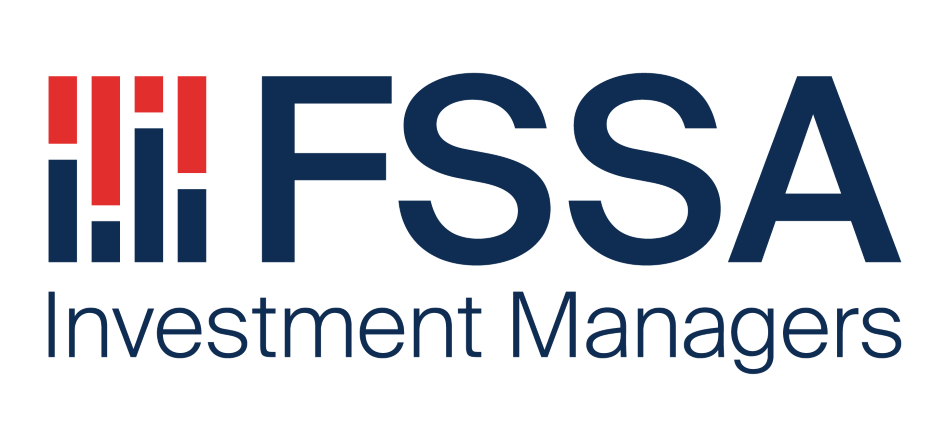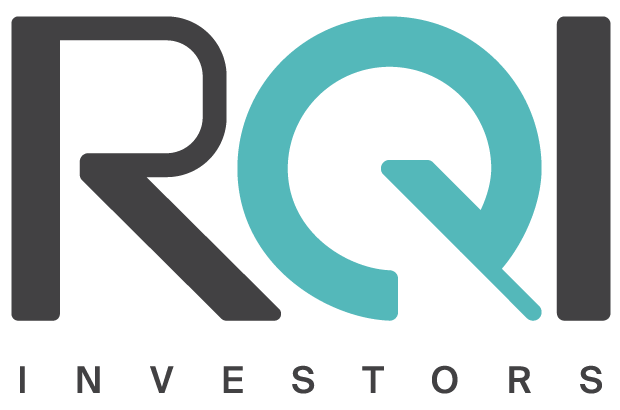SCAMMER ALERT
Please be aware of scammers falsely impersonating FSI representatives about potential investments. FSI representatives do not make direct contact with prospective individual investors on investment opportunities. These are not legitimate approaches from FSI. Find out more about combating investment scams.

Specialist in Asia Pacific, Japan, China, India and South East Asia and Global Emerging Market equities.
Discover more
formerly Realindex Investments
Leader in active quantitative equities across Australian equities, global equities, emerging markets and global small companies.
Backed by a unique blend of research, portfolio construction and risk management, focused on uncovering original insights and translating them into investment strategies that are active and systematic, aiming to generate alpha.
Discover moreInvestment strategies
Insights

At Stewart Investors, we believe in putting people first. Our investment world-view is of a series of partnerships – with each other, with our clients, with the companies we invest in, the people who buy their goods and services, and with the wider society in which we all live and work.
Discover moreEmerging Companies Responsible Investment
- Our capabilities
- Australian equities
- Emerging Companies
- Approach to responsible investment
Approach to responsible investment
Stewardship and ESG integration
Every business is deeply interconnected with environmental, social and governance concerns. ESG issues are no longer just a priority of governments and the public as investors and executives now realise that a strong ESG platform and robust practices to deal with these issues can protect a company’s long-term success. Conversely, poor ESG practices carry true costs and threats to a business.
We believe that increased ESG awareness and implemented practices do not need to increase costs of doing business, in fact, strong ESG practices can increase revenue, lower costs and increase company’s returns.
The team seeks to generate strong long-term performance within a framework of high ESG awareness. We invest in companies who have a strong or improving track record of ESG practices within their respective sectors. Our ESG analysis for each of the companies under research/we invest in underscores our understanding of the financial and reputational impact ESG has on businesses.
Through our board and management engagement with companies, we gain a deep understanding of their ESG practices and potential risks involved and, at the same time, give an opportunity to help in creating better investments for our clients.

Case studies
We believe that a strong commitment to stewardship is an essential component of a strong approach to responsible investment, and that embedding responsible investment into the core of our investment activities is in the best long-term interests of our clients. For more than a decade we have systematically and progressively improved our practices and processes across our investment capabilities globally.
Climate change statement
Key climate-related risks in our team’s portfolio
Transition risk is a key climate-related risk that can impact our portfolio, as changes in policy, regulations, technology and behaviours can have financial implications for companies as we shift to a low carbon economy. As a result of these changes, companies may find that they are unable to generate an economic return, resulting in stranded assets. Further, companies that are perceived to be detracting from the transition to a low carbon economy may be exposed to reputational risk and the risk of losing their social licence to operate. This risk is high for companies who operate in carbon intensive industries, particularly where they fail to reduce emissions or expand carbon intensive activities.
As the economy moves away from fossil fuels to more renewable sources of energy, this will present key risks for traditional sources of energy generation. Utility companies have already begun their shift away from coal with many operators moving forward their plant closure dates. As coal withdraws from the grid, we think gas is likely to play a key role as a transition fuel to provide firming capacity to the grid in addition to providing grid stability and security. The decarbonisation of the electricity grid also presents key opportunities for investment in renewable generation, storage and electricity infrastructure and emerging technologies. For miners, we believe the transition also presents significant opportunities, as demand increases for key materials such as copper and lithium which are needed to underpin the build out of energy assets, energy storage and electricity transmission infrastructure.
We also assess the physical risks associated with climate change upon companies within the portfolio. These physical risks can stem from the increased severity and frequency of extreme weather events or arise from longer-term shifts in climate patterns. Mining and energy companies rely on large physical asset bases, and extreme weather events have the potential to damage assets or disrupt operations representing a key financial risk. Hence companies will have to make sure that their assets are resilient and invest in ensuring the reliability of their assets under various conditions.
How we identify these risks
Robust analysis of a company’s climate-related risks in the small and microcap universe can be hampered by the lack of data and limited public releases. For this reason, our deep understanding of our companies and high degree of interaction with management and the board often leaves us well placed to identify climate related risks within the companies we invest in.
The team is working on a portfolio assessment template to enable us to track a number of Environmental, Social and Governance (ESG) issues including climate-related risks. Key company data metrics we seek to track include Scope 1 and 2 carbon emissions, carbon footprint and carbon intensity. We also assess which companies are aligned or misaligned to a net zero climate commitment. We keep a working file on our engagement with companies including the suggested or agreed steps to address any climate related risk and we will track companies’ progress over time on their commitments and ESG policies and procedures.
The team also utilises ESG risk reports provided by Sustainalytics (where available) which helps us to identify and understand what financially material ESG risks the company faces and how well management is managing these risks. These reports are tailored to match the company’s unique business model and considers their product portfolio, financial strength, geography and historical controversies. In regards to climate-related risks, the reports provide a comprehensive overview and risk rating for the categories of: carbon-own operations, carbon-product and services, emissions effluents and waste, and land use and biodiversity.
The carbon dashboard also provides us with a portfolio level view of our carbon footprint and includes a number of key carbon metrics. This includes enabling us to compare our portfolio’s emissions intensity over time to the benchmark, including on a sector view and viewing our portfolio’s total carbon emissions, carbon footprint and carbon intensity.
How we address these risks
We believe that active ownership and engagement is the most effective tool for addressing climate-related risks. Upon the identification of climate-related risks the team seeks to engage the company management and board to ensure that they are aware of and addressing the issues. Active dialogue with companies provides us an ability to participate in a collaborative discussion with management and the board to persuade and influence the company to drive improvements. Where we feel material climate-related risks are not being addressed, this is a factor we consider when making portfolio investment decisions and can lead to divestment. If engagement is not successful, proxy voting is also another tool we can use to convey any climate-related concerns and can be an avenue to hold companies accountable.
The targets and objectives we have set
Our targets and objectives have been set in reference to the Institutional Investors Group on Climate Change (IIGCC) Net Zero Investment Framework. These include:
By 2025
- 90% of AUM is invested in companies disclosing scope 1, 2 and material scope 3 emissions
- 40% of AUM is invested in companies aligned or aligning to net zero
- 40% of AUM is invested in companies with net zero by 2050 targets
- 55% of AUM is invested in companies with data coverage for an alignment score.
By 2030
- 80% of AUM is invested in companies aligned or aligning to net zero
- 100% of AUM is invested in companies with net zero by 2050 targets
- 100% of AUM is invested in companies with data coverage for an alignment score.
By 2040
- 100% of AUM is invested in companies aligned to net zero by 2040.
By 2050
- 100% of AUM is invested in companies achieving net zero by 2050.
Proxy voting
Proxy voting history by type of resolution
The table below contains the proxy voting history for the team by issue type. The chart provides the same information for FY2023.
Proxy voting information is as at 31/12/2023
Source: First Sentier Investors / CGI Glass Lewis
Voting independence
The chart below shows the number of times the team has voted against management recommendations, proxy advisors' recommendations, or against both. The purpose of this table is to show the independent judgement which is applied by the team when making voting decisions.
Disclaimer
Any targets (including, but not limited to, the net zero targets) on this webpage are based on (i) available information and representations made to First Sentier Investors by third parties, including, but not limited to, portfolio companies; and (ii) assumptions made in relation to future matters such as the implementation of government policy in climate-related areas, enhanced future technology and the actions of portfolio companies. Such information and representations may ultimately prove to be inaccurate and such future matters may not ultimately be realised. As such, First Sentier Investors cannot guarantee the achievement of these targets. These targets are subject to ongoing review and may change without notice.
Any ESG related commitments, are current as at the date of publication and have been formulated by the relevant investment team in accordance with either internally developed proprietary frameworks or are otherwise based on the Institutional Investors Group on Climate Change (IIGCC) Paris Aligned Investment Initiative framework. The commitments are based on information and representations made to the relevant investment teams by portfolio companies (which may ultimately prove not be accurate), together with assumptions made by the relevant investment team in relation to future matters such as government policy implementation in ESG and other climate-related areas, enhanced future technology and the actions of portfolio companies (all of which are subject to change over time). As such, achievement of these commitments depend on the ongoing accuracy of such information and representations as well as the realisation of such future matters. Any ESG related commitments are continuously reviewed by the relevant investment teams and subject to change without notice.
To the extent this material contains any measurements or data related to ESG factors, these measurements or data are estimates based on information sourced by the relevant investment team from third parties including portfolio companies and such information may ultimately prove to be inaccurate.
Keep up to date with our latest research and developments on social media, or subscribe to our email newsletter
First Sentier Investors became a Certified B Corporation in November 2022 with a score = 107.2, noting that the passing score is 80. Please visit the B Corp Directory to view our report and for additional information regarding the assessment process.
Material on this website is intended to provide general information only. This material has been prepared and issued by First Sentier Investors (Australia) IM Ltd (ABN 89 114 194 311, AFSL 289017) (FSI AIM), and includes the Financial Services Guide for FSI AIM.
This material does not take into account your objectives, financial situation or needs. Before making an investment decision you should consider the information on this website and the Product Disclosure Statement (PDS) and Target Market Determination (TMD) for the relevant fund, issued by either Colonial First State Investments Limited (ABN 98 002 348 352, AFSL 232468) (CFSIL) or The Trust Company (RE Services) Limited (ABN 45 003 278 831, AFSL 235150) (Perpetual) and assess whether the fund is appropriate given your objectives, financial situations or needs.
Any opinions expressed in videos are the opinions of the individual participant and are subject to change without notice. Such opinions: (i) are not a recommendation to hold, purchase or sell a particular financial product; (ii) may not include all of the information required to make such a decision in relation to such financial product; and (iii) may substantially differ from other individuals within First Sentier Investors.
Copyright © First Sentier Investors (Australia) Services Pty Ltd 2024 (part of First Sentier Investors, a global asset management business. First Sentier Investors is ultimately owned by Mitsubishi UFJ Financial Group, Inc MUFG).
Get the right experience for you
Your location :  Australia
Australia
Australia & NZ
-
 Australia
Australia -
 New Zealand
New Zealand
Asia
-
 Hong Kong (English)
Hong Kong (English) -
 Hong Kong (Chinese)
Hong Kong (Chinese) -
 Singapore
Singapore -
 Japan
Japan




















 United Kingdom
United Kingdom 